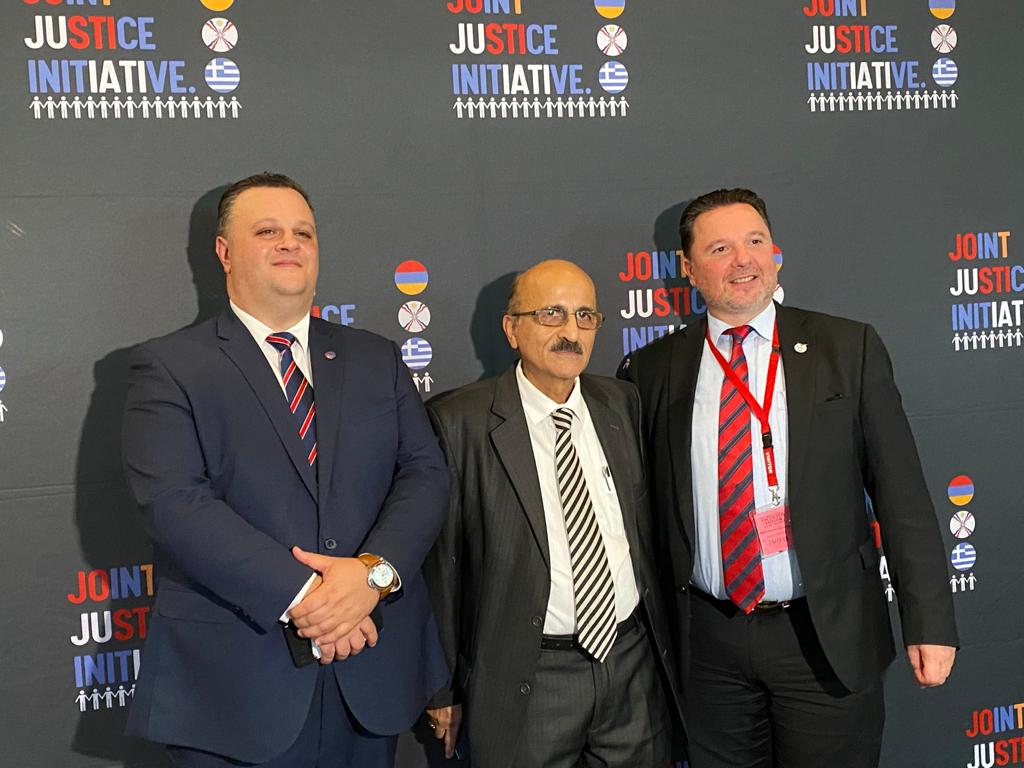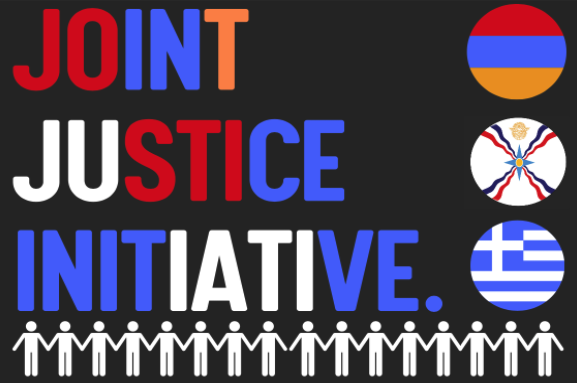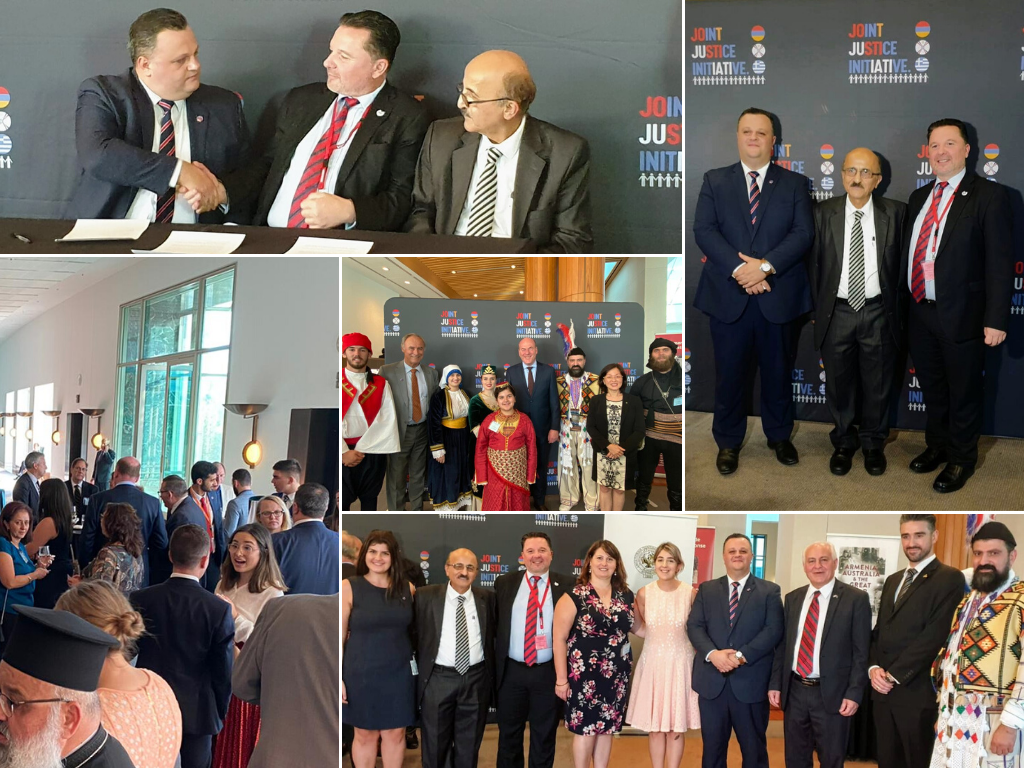Joint Justice Initiative



In 2020, in partnership with the Assyrian Universal Alliance and the Australian Hellenic Council, ANC-AU launched the Joint Justice Initiative, calling for politicians to sign on to the memorandum of understanding of the three communities supporting national recognition of the Armenian, Assyrian and Greek Genocides.
There are so far nearly 50 Members of Federal Parliament and Senators as signatories of the Joint Justice Initiative.
The Joint Justice Initiative was launched with a Memorandum of Understanding (MOU) signed by the Armenian National Committee of Australia, the Assyrian National Council – Australia Chapter and Australian Hellenic Council, affirming that Australia’s recognition of the Ottoman-committed Genocide against the Armenians, Assyrians and Greeks during WWI is the leading advocacy priority for their three communities in the 46th Parliament.
Facts
- Most commonly referred to as the Armenian Genocide, the Ottoman Turkish government systematically planned and oversaw the murders of 1.5 million Armenian men, women and children, as well as over 1 million Assyrians and Greeks, for no reason other than race.
- Anzac POWs recorded what they witnessed was happening to these Christian minorities of the Ottoman Empire, and the Australian press reported on the tragedy as it was unfolding.
- Australia’s first major international humanitarian relief effort ensued, aiding victims of the Armenian, Assyrian and Greek genocides.
- Raphael Lemkin, who coined the term genocide and authored the UN Genocide Convention, cited the Armenian experience as one of his motivating cases.
- Turkey continues to deny its predecessor government committed Genocide, while still holding on to Armenian, Assyrian and Greek properties, churches and sacred sites, many of which have been appropriated to aid the denial,
- In April 2021, President Joe Biden formally recognised the Armenian Genocide following Congress recognition in 2019, ensuring the United States joined over 30 global nations in recognising 1915 as Genocide.
- Australia has not yet recognised the Armenian Genocide, often bullied by Turkey’s current dictatorship, who threaten such a step will threaten future pilgrimages to Gallipoli.
Australian Friends of Artsakh
The Republic of Artsakh’s (Nagorno Karabakh) indigenous Armenian population comprehensively declared independence via referendum in 1991, exercising their human right to self-determination. It is currently under Azerbaijani occupation after Armenia was forced to sign a ceasefire following Baku's 44 days of war crimes in 2020, which were backed by Turkey and Islamist jihadist terrorists.
Artsakh’s struggle concerns the rights of indigenous peoples to live on their ancestral lands, and the stand against corrupt, expansionist and genocidal dictatorships.
We call on prominent members of society to sign this letter, joining the Australian Friends of Artsakh network, which supports the following:
- Upholding the right to self-determination of all peoples, as outlined in the charter of the United Nations, the Covenant on Civil and Political Rights, and the Universal Declaration of Human Rights, and the Helsinki Final Act.
- Promoting the peaceful resolution of the Nagorno-Karabakh conflict, supporting the right to the Armenians of the region to self-determination in the Republic of Artsakh.
- Condemning all attempted military or other suppression by force against the fundamental and peaceful human right of self-determination of the indigenous Armenian population of the Republic of Artsakh.